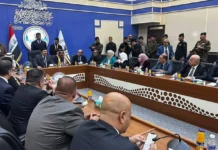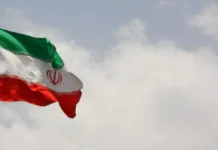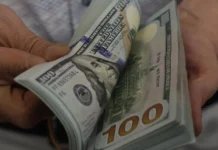Good Morning ,
TRUMP-IMPOSED TARIFFS TO BEGIN TUESDAY AS MEXICO, CANADA ANNOUNCE RETALIATORY RESPONSE
▪️President Trump on Saturday signed an executive order imposing 25% tariffs on imports from Canada and Mexico, with a 10% tariff on Canadian energy and oil, and an additional 10% tariff on China.
▪️The implementation of the tariffs was delayed to Tuesday at 12:01 am.
▪️Mexico’s President Sheinbaum announced the country would implement both tariff and non-tariff retaliatory measures, while Canadian PM Trudeau said Saturday night Canada would implement 25% tariffs on a swath of American goods in response.
President Trump on Saturday declared steep tariffs on all imported goods from Canada, Mexico, and China, setting the stage for a trade war with the U.S.’s largest trading partners.
Trump set the tariffs at 25% on Canada and Mexico, with a 10% carve-out for Canada’s oil and energy exports, and a 10% tariff on all goods from China.
Though the tariffs were initially set to go into effect on Saturday, Feb. 1, the implementation was delayed to Tuesday, Feb 4, at 12:01 am. The tariffs will be imposed on top of any existing tariffs, and have been implemented in response to the flow of illegal drugs into the United States, according to the White House.
“The government of Mexico has afforded safe havens for the cartels to engage in the manufacturing and transportation of dangerous narcotics, which collectively have led to the overdose deaths of hundreds of thousands of American victims,” a White House fact sheet states.
Mexico’s President Claudia Sheinbaum was the first to announce retaliatory tariffs and non-tariff measures in response, in a post on X Saturday evening.
In the post, Sheinbaum proposed that the U.S. and Mexico establish a working group to combat criminal organizations, warned against using tariffs to solve problems, and forcefully denounced the White House’s accusation that the Mexican government has alliances with drug cartels.
“I instruct the Secretary of Economy to implement Plan B that we have been working on, which includes tariff and non-tariff measures in defense of Mexico’s interests,” a translation of Sheinbaum’s post reads.
The Canadian government will also levy counter-tariffs on American goods in response. Canadian Prime Minister Justin Trudeau said in an address to Canadians Saturday night that the country would implement 25% tariffs on a large swath of American goods. Trudeau also said that non-tariff responses affecting the energy sector were being considered.
The Canadian government’s response may eventually include export tariffs on energy, Bloomberg reported Saturday, setting the stage for a critical trade war between the U.S. and its largest foreign energy supplier.
The price of energy factors heavily into the cost of mining Bitcoin in the U.S., which has an estimated 36% share of the global hashrate, according to mining firm Luxor.
The Block’s GMCI 30 index of the top 30 crypto tokens by market cap is down about 4% over the past 24 hours as the market responds to Trump’s executive order.
@ Newshounds News™
Source: The Block
~~~~~~~~~
ARGENTINA DESIGNS FORENSIC PROTOCOLS TO FIGHT CRYPTO CRIME
Argentina has designed and established identification and forensic protocols to guide security and police forces in standardizing their actions to fight crypto crime.
Argentina Establishes Forensic, Identification, and Seizing Protocols for Crypto Crimes
Argentina has taken another step toward empowering its public servants to fight crypto crime.
The Nation’s Security Ministry recently issued Resolution 117/2025, which describes the procedures that public servants, including police and federal security forces, must follow when dealing with digital assets possibly linked to crime.
The protocol, which Argentine authorities must now follow, seeks to standardize the necessary processes to prevent the loss or alteration of digital assets in official procedures.
In the same way, the resolution recognizes and identifies that cryptocurrencies are tools that are being used in money laundering and terrorism financing schemes.
Because of this, the Security Ministry has established the need to strengthen the research and tracking of these assets when they are involved in criminal activities.
With this move, Argentina jumps to the forefront of Latam regarding the treatment of crypto-related crime and recognizes the relevance of digital assets as money proxies.
And with a good reason: the country has been home to several high-profile crypto frauds affecting thousands, mostly related to investment fraud and Ponzi schemes.
The Security Ministry is aware of this crypto crime wave and has been preparing a suite of tools to combat it. In December, the ministry established that the security forces should prevent “unauthorized financial intermediation through the use of cryptoassets,” vowing to preemptively track possibly criminal behavior derived from their usage.
Argentine authorities scored major wins in crypto crime cases last year. In September, one of the first crypto seizures was executed in a money laundering operation that mixed phone smuggling activities and illegal online casinos.
Also, In December, Argentine law enforcement agencies requested the freezing of 3.5 million USDT linked to Rainbowex, an alleged Ponzi scheme. This marked the first time Argentine law authorities interacted directly with Tether in a criminal case, issuing an order for this objective.
@ Newshounds News™
Source: Bitcoin News
~~~~~~~~~
Seeds of Wisdom Team RV Currency Facts Youtube and Rumble
Newshound’s Podcast Link
Newshound’s News Telegram Room Link
Q & A Classroom Link
Follow the Roadmap
Follow the Timeline
Seeds of Wisdom Team™ Website
Subscribe to Seeds of Wisdom Team™ Newsletter






